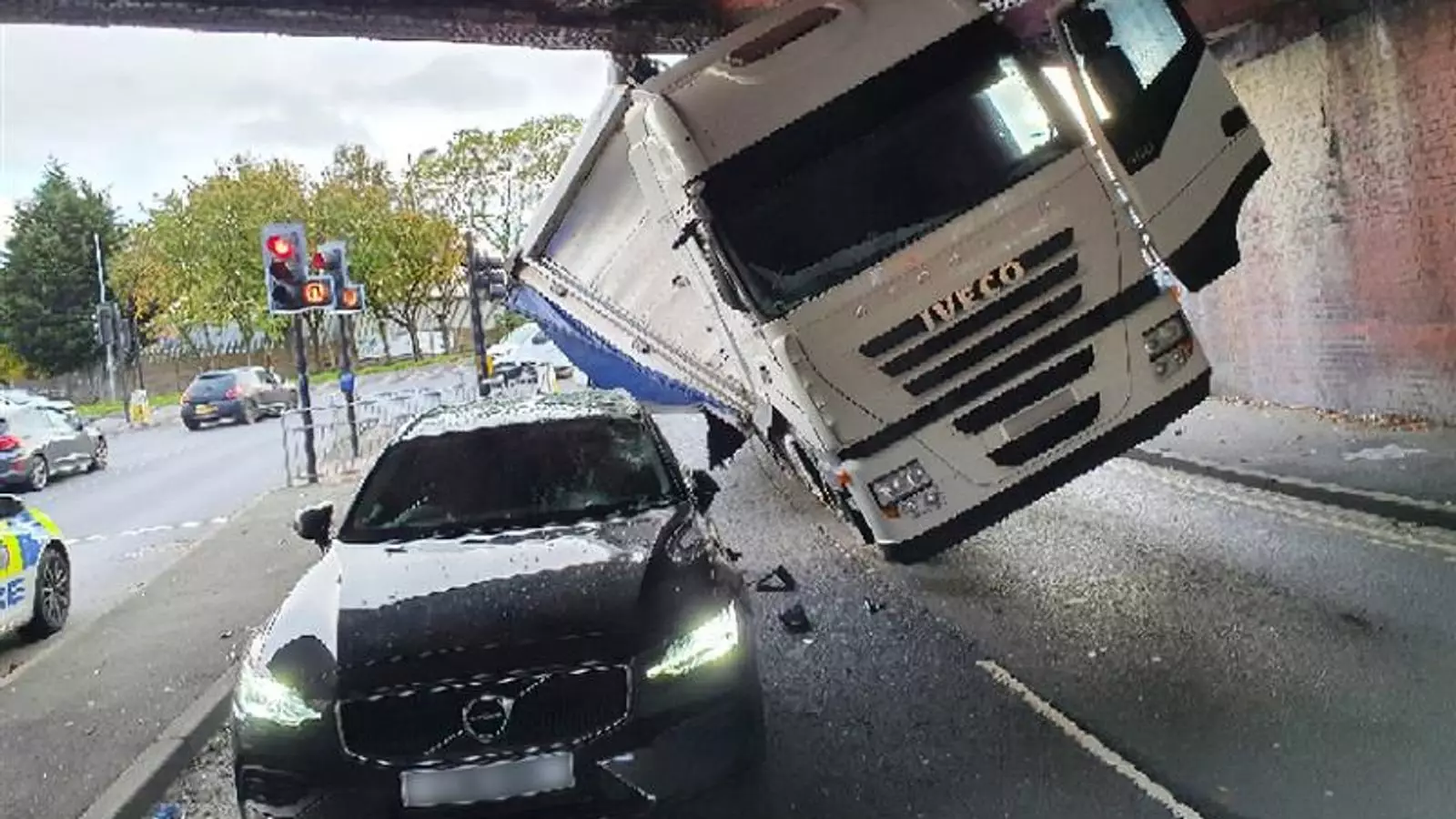Ian Lee considered himself fortunate to have escaped life-threatening injuries after a traumatic experience involving a stolen lorry. The incident, which took place in Wakefield, West Yorkshire, illustrates the alarming dangers posed by uninsured drivers on the road. Lee, a 60-year-old motorist, was returning home when a truck equipped with cloned license plates collided violently with his vehicle. This distressing encounter left him shaken, as the unwitting victim of a reckless act. The sheer force of the collision was enough to shatter his car windows, filling the passenger seat and dashboard with dangerous shards of glass.
He vividly recalls the moment of impact, describing it as an “almighty crash.” Just before the incident unfolded, Lee had merely set off from a nearby traffic light. The sudden onslaught of the lorry caused his vehicle to spin, tossing him across the road and rendering him momentarily disoriented. The driver of the stolen lorry fled the scene, emphasizing the all-too-common issue of hit-and-run drivers. Even months later, the memory of that day lingers. Lee suffered a shoulder injury that necessitated ongoing medical treatment, and he still grapples with persistent discomfort.
Lee’s story is far from isolated. Data released by the Motor Insurers’ Bureau (MIB) sheds light on a troubling trend: every 20 minutes in the UK, a motorist is either hit by an uninsured driver or caught in a hit-and-run scenario. Disturbingly, at least one person every day suffers injuries severe enough to require life-long care, underscoring the gravity of this escalating issue. The MIB has responded to this crisis with its Operation Drive Insured campaign, collaborating with law enforcement to address the prevalence of uninsured drivers across the country.
The statistics reveal a staggering array of locations notorious for uninsured driving, with a significant concentration in the West Midlands. Out of the top 15 hotspots identified by the MIB, eight are situated in this region, while other affected areas span from Northumbria to Greater London. It highlights the urgent need for both awareness and action — the communities most impacted by these crimes require immediate intervention.
The repercussions of uninsured driving extend beyond individual incidents. The MIB estimates that victims and society as a whole bear an economic burden of nearly £2.4 billion annually due to the costs associated with emergency services, medical care, lost productivity, and the broader human toll. The financial implications highlight a harsh reality: the irresponsibility of a few can lead to dire outcomes for many.
The legal penalties for uninsured drivers are significant, including a £300 fixed penalty notice and six points on their license. Beyond that, if stopped, these drivers may have their vehicles seized, with some ultimately sent for crushing. Serious offenders could find themselves facing unlimited fines and a potential ban on their driving privileges.
In response to these evolving challenges, police road units are intensifying checks in high-risk areas, a measure that is long overdue. The MIB has reported the alarming seizure of nearly 115,000 uninsured vehicles in just the past year, a wake-up call for society. The question begs — when will enough be enough? How many more incidents must occur before comprehensive reforms are not just discussed, but actualized?
Those who participate in irresponsible driving behaviors jeopardize the safety of all. Greater accountability must be enforced through stricter laws and more rigorous policing. Public education campaigns must also play a role in shifting attitudes towards uninsured driving.
The harrowing account of Ian Lee serves as a grim reminder of the potential consequences of uninsured driving. As citizens, we must advocate for safer road conditions and push for legislative measures that deter such reckless behavior. Collaboration between the community, law enforcement, and policy-makers is crucial in effectively addressing this growing epidemic. After all, the roads belong to everyone, and ensuring their safety is a shared responsibility. It is time for us all to act.


Leave a Reply